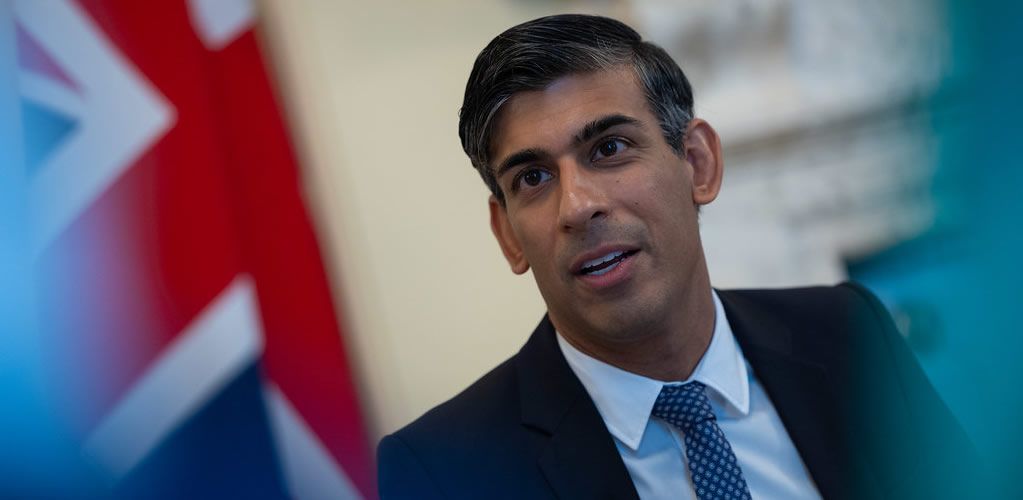Sunak’s Net Zero policy shift sparks controversy
Rishi Sunak’s decision to slow down the UK’s shift to electric vehicles, postpone climate targets and scrap other plans have stirred up strong reactions from various quarters, including his own party. Does it make him a strong leader?

Rishi Sunak’s decision to slow down the UK’s shift to electric vehicles, postpone climate targets and scrap other plans have stirred up strong reactions from various quarters, including his own party. Does it make him a strong leader?
W hile Rishi Sunak aims to maintain the Government’s commitment to reach net zero emissions by 2050, there are concerns about postponing the phase-out of gas boilers and the ban on petrol and diesel cars. This shift in climate policy has caused consternation among Tory MPs, environmental groups, and the public.
Let’s explore the reasons behind Sunak’s stance, the implications of these changes, the motivations behind them, and the wider debate on the environmental and economic impacts.
Reconsidering Climate Commitments
PM Rishi Sunak has announced alterations to the Government’s climate goals. These changes, prompted by the recent Tory victory in the Uxbridge by-election thanks to their campaign against the expansion of the ultra-low emission zone (Ulez), have been met with mixed reactions.
First, Sunak has decided to extend the deadline for the ban on new cars with combustion engines from 2030 to 2035, citing potential cost savings for consumers. Sunak anticipates that the majority of cars sold by 2030 will be electric due to decreasing electric vehicle prices and increased consumer adoption.
However, experts disagree, suggesting that this delay exposes UK drivers to volatile international oil prices and could harm the economy by undermining investment in clean technologies.
The shift may also affect consumers, particularly those who buy secondhand petrol cars. Furthermore, the uncertainty around targets and policies could deter car manufacturers from investing in the UK.
The government also plans to weaken the phase-out of gas boilers, delaying the transition to heat pumps until 2035, which may extend the UK’s reliance on imported gas.
Critics argue that Sunak’s approach fails to consider the impact of rising natural gas prices on households and businesses and the urgent need to embrace clean energy alternatives.
The government will no longer require homeowners and landlords to meet energy efficiency targets, potentially increasing costs for renters.
Sunak’s decisions also indicate a reluctance to implement policies encouraging sustainable behaviour, such as taxing airlines and disclosing the carbon footprint of meat. While experts argue that many changes should fall on businesses, making eco-friendly choices should be more accessible and affordable for consumers.
“We’ve stumbled into a consensus about the future of our country that no one seems to be happy with.
“We seem to have defaulted to an approach which will impose unacceptable costs on hard-working British families, costs that no one was ever really told about and which may not actually be necessary to deliver the emissions reduction that we need.
“I get that lots of people out there are going to be critical of what I’m doing today – they’ll have their own views.
“The question for all those people who are criticising this approach is to ask them to justify to all those families up and down the country why they think it’s right to ask them to find £10,000, £15,000, £20,000 at a time.
“The proposal for government to interfere in how many passengers you can have in your car – I’ve scrapped it.
“The proposal that we should force you to have seven different bins in your home – I’ve scrapped it.
“The proposal to make you change your diet and harm British farmers by taxing meat, or to create new taxes to discourage flying or going on holiday. I’ve scrapped those too.”
— Rishi Sunak, Prime Minister
What’s new?
When he delivered his speech on Wednesday afternoon, Rishi Sunak confirmed:
▫ The ban on the sale of new cars and vans running solely on petrol and diesel will be delayed from 2030 to 2035;
▫ The plan to phase out gas boilers by 2035 has been weakened, ensuring that households facing difficulties in switching to heat pumps will not be required to make the change;
▫ The ban on boilers relying on heating oil in off-grid homes has been pushed back from 2026 to 2035. This extension allows off-grid homeowners more time to find alternative heating solutions;
▫ Policies that would have compelled landlords to upgrade the energy efficiency of their properties have been scrapped.
In addition, the prime minister announced the scrapping of what he called a “worrying set of proposals” that emerged during debates on net zero, including:
▫ Enforcing upgrades to home insulation within two years;
▫ The government interfering in the number of passengers allowed in cars;
▫ Requiring households to have seven different bins;
▫ Imposing taxes on meat consumption to change diets and potentially harm British farmers;
▫ Introducing new taxes to discourage flying or going on holiday.
Political Backlash
Conservatives are divided on these changes though, with some suggesting that environmental policies might harm the party’s electoral prospects.
CONTINUE READING...
Enjoy unlimited access now.
To get full access to this article,
simply become a member of PUBLIC SQUARE now.
By doing so, you will be supporting
our independent journalism.
MEMBERSHIP OPTIONS:
£3/month ∙ £5/month ∙ £7/month
You can cancel anytime.
BECOME A MEMBER
Already a member? Sign in here!
BENEFITS OF MEMBERSHIP:
✅ Read exclusive member-only articles
✅ Read our daily review of the UK front pages
✅ Receive every new article by email
✅ Access all our articles
✅ Get Special Discounts with our partners
✅ Join the conversation: Comment our articles
✅ Access our archives
✅ More importantly: Support independent journalism and keep the magazine going
Read more

— Elon Musk’s self-radicalisation stems from his reliance on X’s algorithm-curated feed, which amplified far-right narratives, creating a feedback loop that entrenched his beliefs and shaped his radical political discourse.

— Elon Musk’s controversial gesture at Trump’s inauguration sparked accusations of Nazi symbolism, while Trump’s extremist policies and global provocations highlight an alarming shift towards far-right authoritarianism. The world watches anxiously.

— Your daily roundup of the front pages of the main newspapers and magazines today in the UK... and beyond.

— On his first day, Donald Trump pardoned January 6 rioters, emboldened extremists, and signed a vague economic order, raising deep concerns about his emboldened presidency and unpredictable future actions.
|
|

